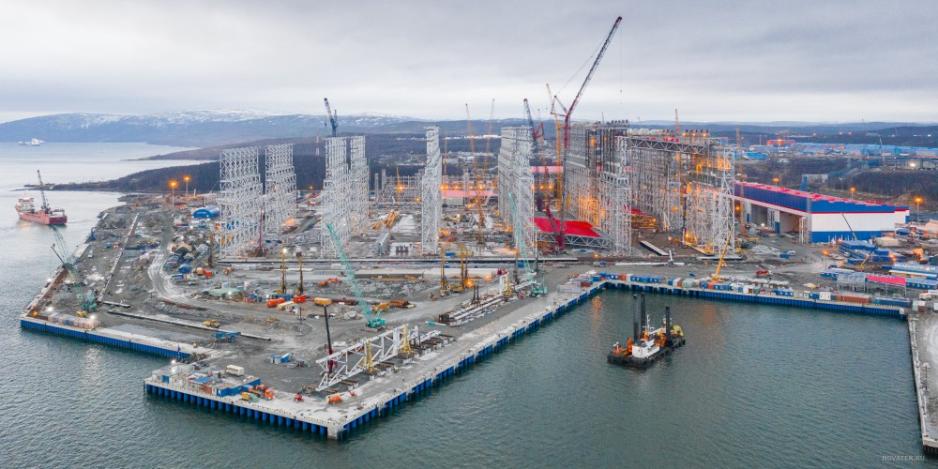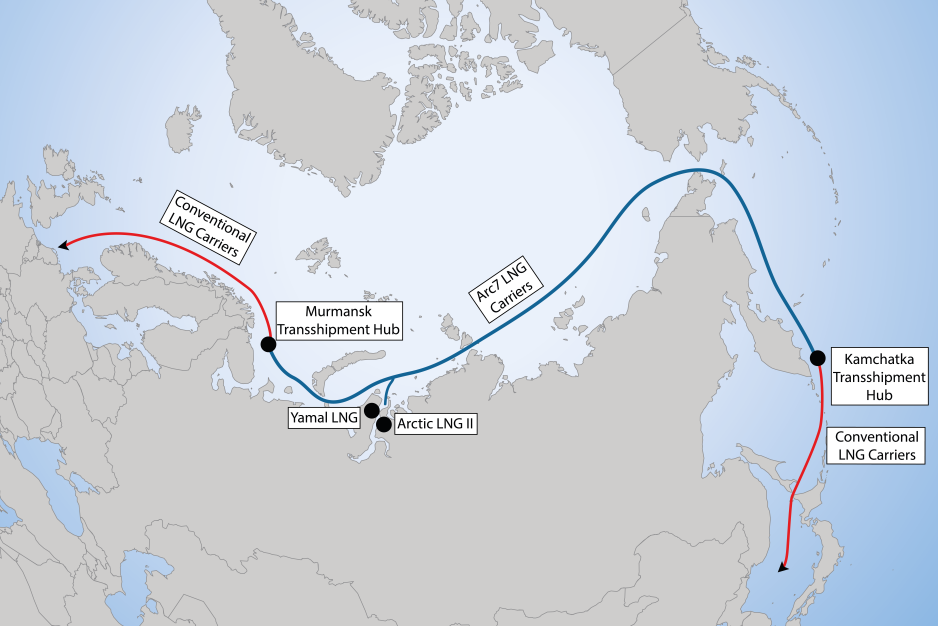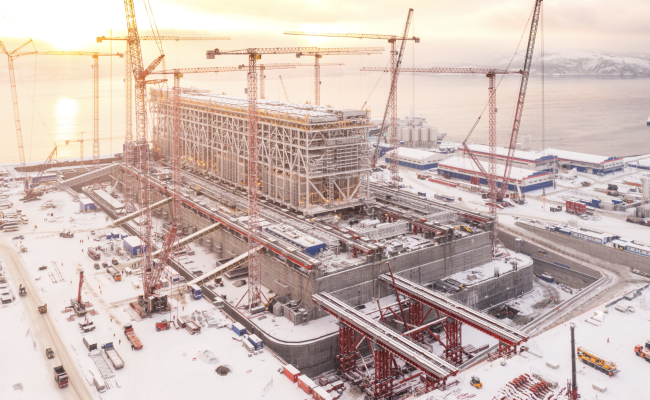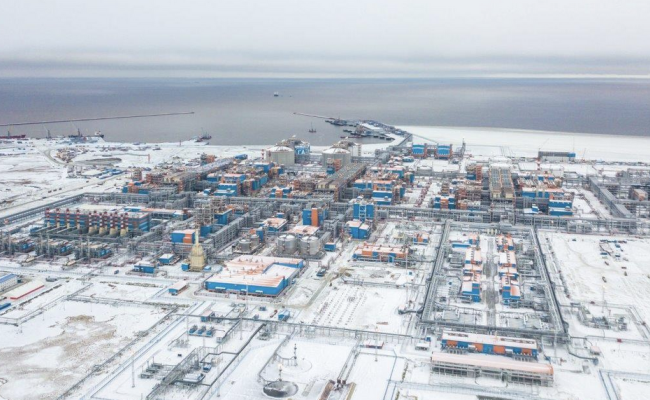Western Sanctions Delay Opening of Arctic LNG 2 Project by One Year

Novatek’s LNG construction center near Murmansk. (Source: Courtesy of Novatek)
Novatek has been focused on finding new partners to help salvage its flagship LNG project in the Arctic after western companies exited the project. Despite these efforts this week the company said the opening of the project will be delayed by at least a year.
Russia’s largest privately-owned natural gas producer Novatek announced that it will not be able to complete the first stage of its flagship liquefied natural gas project (LNG) in the Arctic before the end of 2023 at the earliest.
Originally the company had planned to move the gravity-based floating foundations into place in summer 2022 and begin production of LNG in early 2023.
However, at an industry conference in Vladivostok this week Novatek’s deputy chairman Yevgeny Ambrosov announced that the foundations, which are prefabricated at a construction yard near Murmansk, will not be ready to be towed to the site of Arctic LNG 2 on the Gydan Peninsula until at least August 2023.
“The first stage of Arctic LNG 2 will be towed to the Gulf of Ob next August. All that remains is to connect the finished plant to the coastal infrastructure,” stated Ambrosov at the Eastern Economic Forum.
Sanctions slow down progress
Arctic LNG 2 is Novatek’s second LNG project in the polar region following Yamal LNG which opened in 2017. Western sanctions have had a profound impact on the construction of the facility and related infrastructure. In its original configuration the project consists of three production lines or trains each producing 6.6m tons of LNG per year.
Experts question if Novatek will be able to overcome the impact of sanctions and launch all three lines, especially the third train which is currently less than 30 percent complete.
Naturally, we experienced difficulties in connection with the sanctions events.
A number of western partners, including France’s Total, Germany’s Linde and Siemens and Japan’s Mitsui, who provided both technical knowhow and services as well as financing have exited the project over the past six months. In addition, a number of specialized ice-capable LNG carriers under construction in South Korea by Daewoo Heavy Industries were also canceled.
The company hopes that Russia’s domestic Zvezda shipyard, which was already slated to build some of the LNG carriers with design and technical assistance from Daewoo, can step up and construct the full order of 15 vessels. According to Russia’s Ministry of Industry and Trade the first two Arc7 LNG carriers built by the Zvezda shipyard will be commissioned in the near future.
Finding new partners
Novatek has been looking to replace former western partners with domestic Russian companies. French company Technip, which exited the project earlier this summer, has been replaced by Nipigaz, Novatek’s chairman of the board Leonid Mikhelson announced this week.
Naturally, we experienced difficulties in connection with the sanctions events. But I can already say with confidence that we practically see how to overcome all these difficulties and how to solve these problems,” he said.
Russia’s Sberbank will also provide additional financing and loan guarantees to compensate for reduction in financial support by western companies.
Transshipment hubs on track
According to the company, one key aspect of Novatek’s plans to shuttle LNG from the Arctic to Europe and Asia has not been affected by sanctions.
In order to improve the economies of scale the company ordered two floating LNG transshipment terminals, the largest of their kind in the world, to be positioned near Murmansk and Kamchatka at each terminus of the icy waters of the Northern Sea Route.

Novatek’s two Arctic LNG facilities and shipping route to Europe and Asia with location of future transshipment hubs. (Source: Author’s own work)
The hubs can store up to 360,000 cubic meters of LNG and will allow for more efficient use of the shipping fleet. The first one is expected to arrive off the waters of Murmansk by the end of 2022 with the second one following in April 2023.
“Next year we are launching both transshipment hubs - in Murmansk and Kamchatka,” Mikhelson explained.
With rising demand for LNG in Europe and around the world Novatek appears to have little difficulty selling its product on the international market. The company announced that it has already contracted the first 3-4m tons of LNG per year, around 60 percent of the capacity of train number one, under long-term agreements.





